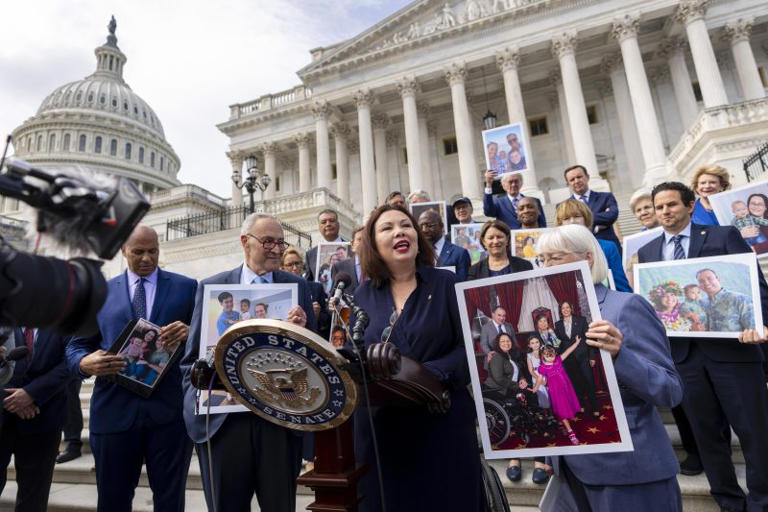Democrats IVF Protection Bill Fails Again: What Happened and What’s Next

The U.S. Senate has once again rejected the Democrats’ bill aimed at protecting in vitro fertilization (IVF). Known as the Right to IVF Act, this legislation sought to safeguard and expand access to fertility treatments nationwide. Let’s examine the events surrounding its failure, the reasons behind it, and the potential future implications.
What is the Right to IVF Act?
Senator Tammy Duckworth (D-IL) sponsored the Right to IVF Act to protect and expand nationwide access to IVF treatments. Doctors use IVF, a medical procedure, to help individuals and couples with infertility issues conceive children. Through this bill, Duckworth aimed to enshrine IVF treatments’ accessibility and protection under federal law.
Why Did the Bill Fail?
The Senate rejected the bill due to insufficient support. Despite gaining 51 votes in favor, the legislation fell short of the required 60-vote threshold to advance, with 44 senators opposing it. Party lines largely dictated the outcome, as most Republicans also voted against the measure. Only two Republican senators broke ranks: Susan Collins (R-ME) and Lisa Murkowski (R-AK) supported the bill.

Key Reasons for Opposition
- Political Strategy: Some Republicans accused Democrats of using the bill as a “show vote” to put them in a difficult position before the upcoming elections.
- Alternative Proposals: Senator Katie Britt (R-AL) and Senator Ted Cruz (R-TX) put forward their own IVF protection legislation, but Democrats blocked these proposals.
- Broader Reproductive Rights Debate: The bill’s defeat highlights the ongoing, heated debate over reproductive rights in the U.S., which has emerged as a central issue in the 2024 elections.
What’s Next?
The failure of the Right to IVF Act highlights the deep divisions in Congress over reproductive health issues. As the 2024 elections approach, reproductive rights, including access to IVF, are also expected to remain a contentious and highly debated topic2.
The repeated failure of the Democrats’ IVF’s protection bill underscores. The challenges in passing legislation related to also reproductive health in a deeply divided Congress. As the debate continues, it remains to be seen how this issue will influence the upcoming elections and future legislative efforts.


